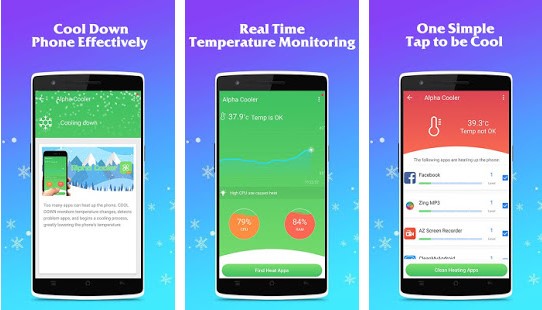March 23, 2020
Opjee Modern smartphones have a sensor that measures the temperature of the phone's lithium battery to prevent it from overheating, which can be dangerous.

The increase in battery temperature may be due to environmental conditions, intensive use of the phone, or it may increase in areas of less coverage, where the processor constantly works to search for the signal and maintain the connection to the mobile network.
In fact, it is not surprising that phone gets to put in low consumption mode -for example, lowering the brightness of the screen or reducing its performance- when they detect an increase in its temperature.
Correlation between ambient and mobile temperature
Taking advantage of this data, Dutch researchers are determining how to measure the ambient temperature from the temperature of the mobile. Both data are not similar, since the temperature of a phone's battery even when idle is somewhat higher than the ambient temperature.
However, the researchers have managed to determine a strong correlation between the ambient temperature and the temperature of the mobile battery when enough of this data is processed, when it is obtained from a large enough user base.
To develop the calculation algorithm, the researchers obtained the battery temperature data from the information sent by thousands of phones that make use of the OpenSignalapplication, a collaborative service that determines the presence and intensity of the signals from wifi and mobile phone worldwide and displays data on local coverage maps.
It is calculated that the applicationOpenSignal captures up to a million of these readings every day from some 150,000 Android phones, although at the moment researchers are working with measurements from just a dozen cities.
Know the temperature accurately
Measuring the temperature in a distributed way inside the cities offers more reliable data that is also constantly updated, almost in real-time and unlike what happens if only the data obtained by fixed weather stations are considered.
These have a much smaller number and in most cases outside the city center, whose data is also updated much less frequently.

"Accurate knowledge of the city's temperature is especially important due to the 'island effect' produced by urban heat. Basically the center of a city tends to be warmer than its surroundings due to the presence of heat-absorbing materials such as asphalt, cement, and buildings, among other things, this means an increased risk - even death - for a part of the population, especially among the younger and older people, "they explain in Inside Science.
To determine the correct relationship, the algorithm must consider the heat transfer from the user's body to the phone and the ambient temperature, especially in summer.
It even varies from phone to phone depending on its construction -material and insulating capacity- and efficiency -the heat dissipated during operation.The system should also consider the seasons of the year, and in theory should also distinguish when a phone is outdoors or indoors and whether it is day or night.
However, according to the researchers, when buying the data obtained with their algorithm and the actual measurements abroad - obtained from the information provided by the airports of these cities - they observed that, in the worst case, the variation was barely 1.5degreet, which has merit considering that the differences between the battery temperature and the 'real' ambient temperature can multiply that difference by ten.
Posted by: Jhantu Prasad at
10:37 AM
| No Comments
| Add Comment
Post contains 598 words, total size 5 kb.
30 queries taking 0.0214 seconds, 40 records returned.
Powered by Minx 1.1.6c-pink.









